
Lisa Grossman
Astronomy Writer, Science News
Lisa Grossman is the astronomy writer for Science News. Previously she was a news editor at New Scientist, where she ran the physical sciences section of the magazine for three years. Before that, she spent three years at New Scientist as a reporter, covering space, physics and astronomy. She has a degree in astronomy from Cornell University and a graduate certificate in science writing from the University of California, Santa Cruz. Lisa was a finalist for the AGU David Perlman Award for Excellence in Science Journalism, and received the Institute of Physics/Science and Technology Facilities Council physics writing award and the AAS Solar Physics Division Popular Writing Award. She interned at Science News in 2009-2010.

All Stories by Lisa Grossman
-
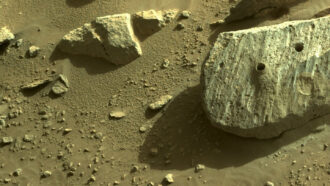 Planets
PlanetsNASA’s Perseverance rover grabbed its first Martian rocks
Two finger-sized pieces of stone drilled from a basalt rock are the first bits of Mars ready to be brought to Earth.
-
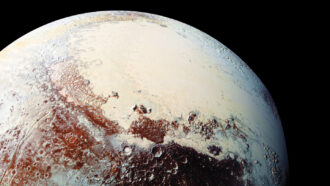 Planets
PlanetsPluto is no longer a planet — or is it?
In the 15 years since Pluto lost its status as a planet, some scientists continue to use whatever definition works best for them.
-
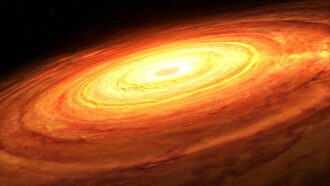 Space
SpaceHere’s an easier new way to weigh a black hole
The timing of flickers in the gas and dust of a black hole’s accretion disk correlates to its mass, a new study finds.
-
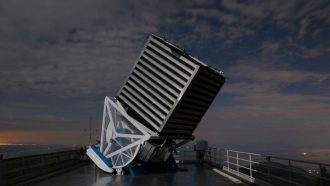 Space
SpaceHuge arc of galaxies is surprising and puzzling cosmologists
The arc appears to violate a cosmic rule that on such large scales, matter will be evenly distributed.
-
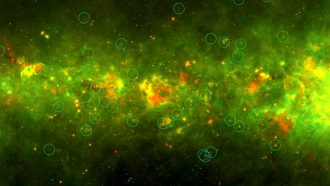 Space
SpaceThe Milky Way’s ‘yellowballs’ are clusters of baby stars
The mysterious cosmic objects — first spotted by citizen scientists — turn out to be infant stars of various masses.
-
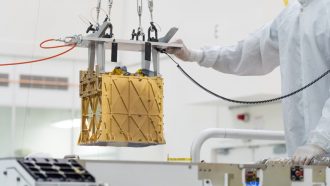 Planets
PlanetsThe Perseverance rover split CO2 on Mars to make breathable air
This oxygen-making experiment shows that astronauts could one day make air to breathe and to help fuel their ride back home.
-
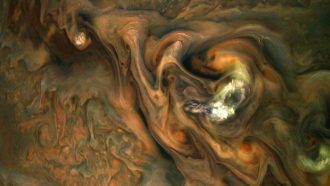 Space
SpaceRaindrops on alien worlds will obey Earth-like rules
Their size will be similar no matter what they’re made of or on which planet they fall, a new analysis finds.
-
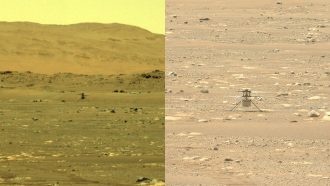 Space
SpaceIngenuity helicopter makes history by flying on Mars
The copter's 40-second-long flight in the Red Planet’s thin air is only the first in a planned series of daring flights.
-
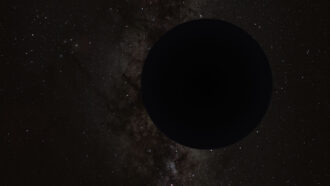 Planets
PlanetsSigns of a hidden Planet Nine in our solar system may be an illusion
Hints of the remote planet, also called Planet X, relied on clumped up orbits of bodies beyond Neptune. A new study suggests that clumping doesn’t exist.
-
 Space
SpaceExploding neutron star proves to be energy standout of the cosmos
This is what scientists had suspected. But until one showed up outside our galaxy, they couldn’t be sure. Now they are.
-
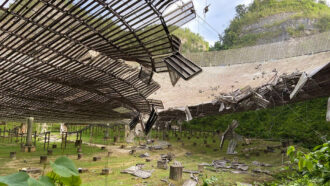 Space
SpaceStar of science and movies, the Arecibo radio telescope is dead
Broken cables led to catastrophic damage of its history-making dish. The U.S. National Science Foundation will now dismantle what remains.
-
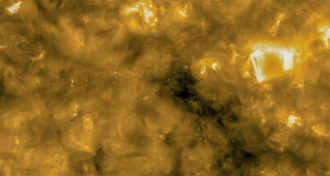
Close-up of the sun reveals ‘campfires’
Solar Orbiter’s first images are in. The spacecraft’s pics show tiny, never-before-seen flares across the sun’s surface.